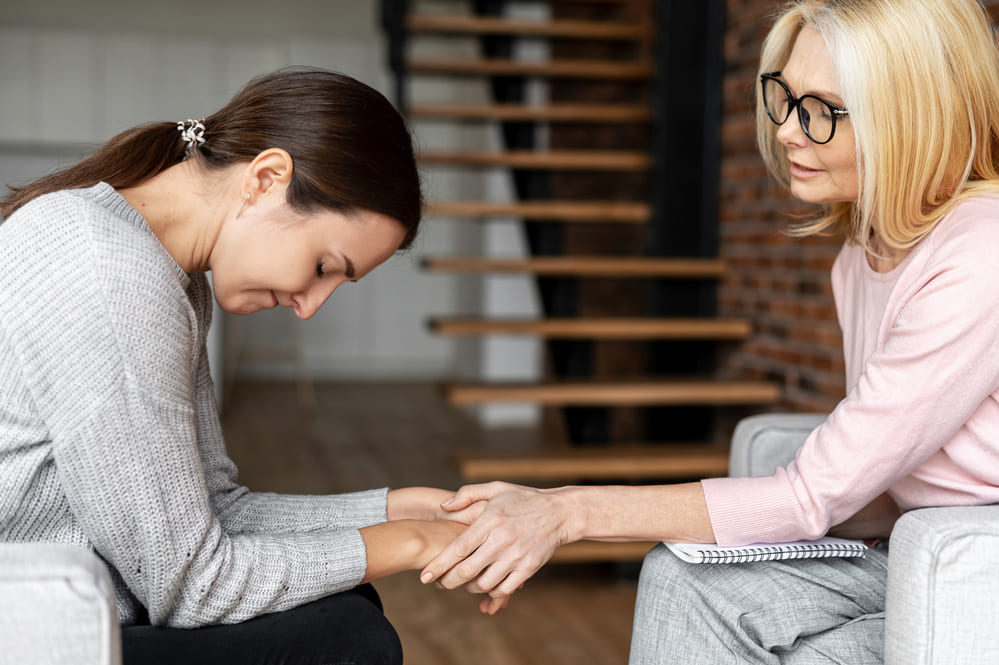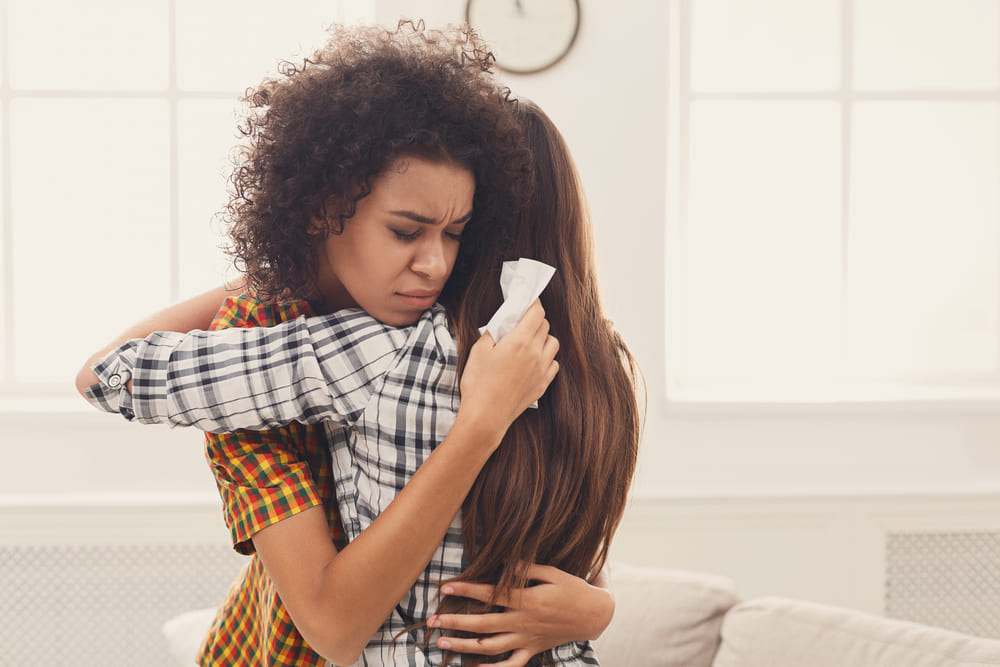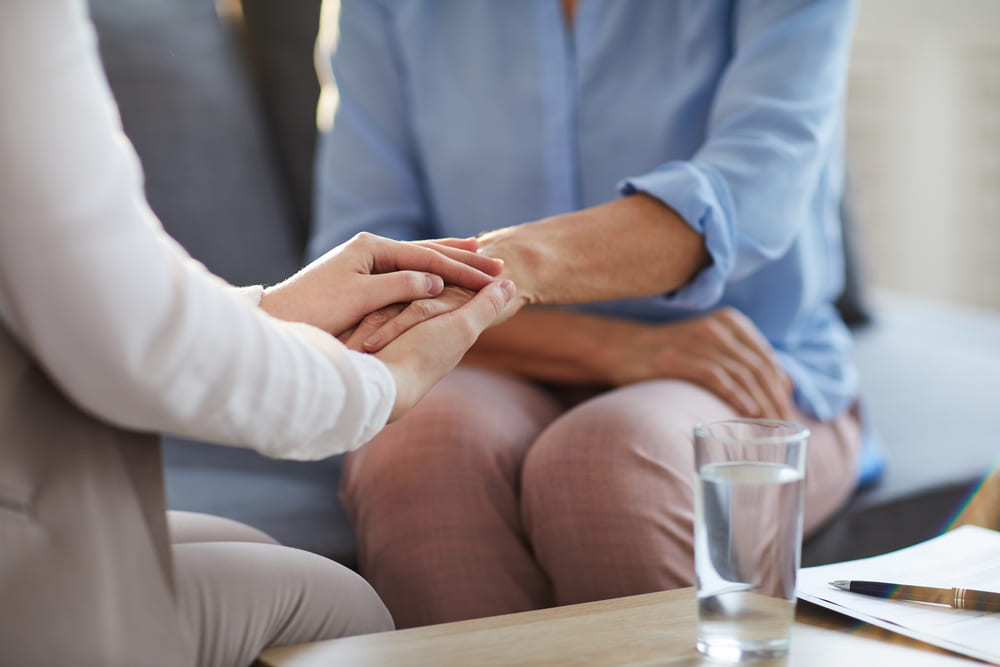
There are only a handful of emotions as intense as what we feel after losing someone, and the depression that follows is often overwhelming. While time can bring some relief from this profound feeling, this is not always the case. If you recently lost a loved one or have been struggling to cope with feelings of depression, please do not hesitate to visit a mental health professional.
What is the Depression Stage of Grief?
It is perfectly normal to experience a wide range of emotions after losing a loved one. While in most cases, this begins with denial, anger, and bargaining, most people move into a state of depression once they realize that there is nothing they can do to bring back a lost one.
How long does the depression stage of grief last?
This stage of grief is often the most intense, as it can feel like a dark cloud is hanging over you, causing you to ignore everything else in your life. While in most cases, this deep feeling of depression will fade as time ticks along, some people often find themselves stuck in this tide of sadness for weeks, months, or even longer, depending on the individual.
If you recently lost a loved one and have been unable to cope with this feeling of depression, you must remember that you are not alone. Today, various mental health professionals can help you navigate this challenging period by providing the support and guidance you need to find acceptance and closure.
Symptoms of the Depression Stage of Grief
Constant Feelings of Sadness and Hopelessness
Being stuck in the depression stage of grief can be a heavy load to bear. Today, one of the most common symptoms that people experience while battling this depression is feelings of sadness or hopelessness. In most cases, this sadness may make you feel like the entire weight of the world is pressed against your chest, making it challenging to move around or stay motivated.
Unfortunately, this hopelessness can be tremendously isolating and may lead to you cutting yourself off from everyone else as you grieve. Naturally, as time goes on, this feeling of isolation often feeds into our sadness, leaving us stuck in a dark spiral that is often challenging to escape.
Crying Often
It is natural to shed a few tears as we think about our lost ones, reminiscing on beautiful memories and having regrets over things we did not get to tell them. In most cases, this may mean crying at unexpected times, such as while doing the dishes or watching your favorite T.V. show as your mind wanders on.

Although you may feel sad or angry as you continue to battle these tears, you must always understand that this symptom is a natural part of the grieving process. So, as the days pass, these tears should become less intense and frequent.
Keeping Your Pain to Yourself
Grief is a tremendously personal emotion, and it is often challenging to explain it to others that did not have a close relationship with your lost one. Unfortunately, this often leads to us bottling our feelings and keeping our sadness and despair to ourselves, causing us to feel more isolated and alone.
However, hoarding your emotions in this way only papers over the cracks and draws out the healing process. So, if you are dealing with grief, you must always understand that reaching out to others for support and speaking about your loved ones to those around you is one of the best ways to achieve healing.
Alternatively, if you do not feel comfortable speaking to your friends or family about your grief, we suggest reaching out to a mental health professional. These individuals have extensive experience helping people find acceptance and will always be glad to help you heal from your grief.
What Happens in the Depression Stage of Grief?
The depression stage of grief often centers around feeling a powerful sense of hopelessness, sadness, and despair. During this period, most people tend to isolate themselves from the world and those around them as they struggle to accept that they will never see, touch, or hug their loved ones again.
This fight to accept this new reality may also lead to a range of negative emotions and thoughts, such as thinking about what they could have done to prevent the loss. Many people also feel deeply unmotivated during this period, especially if their lost one was a driving force in their lives.
However, while these emotions, thoughts, and feelings can be overwhelming, you must always remember that they are also perfectly normal. Crying often, feeling uninspired, and questioning everything around you are part of the grieving process that most people go through when they lose a loved one.
So, while it can be easy to think that you will never feel happy or find joy in life again, you must remember that this could not be further from the truth. With time and suitable support, you can beat this depression and accept the beauty of your new reality.
How the Deal With the Depression Stage of Grief?
Don’t Forget to Connect With Others
One of the core things to remember about the depression stage of grief is that you do not have to go through it alone. When you are battling hopelessness or feeling stuck in a state of despair, connecting with others and sharing your feelings can help bring the light back into your life.
Mental Health Professionals are Here to Help
Moving on from grief is not a one-stop journey where everyone hops on a train and gets off simultaneously. Instead, it is a personal process that people experience in different ways. So, we will always understand that finding acceptance and getting off the train can be more challenging for some people than others.
If you are in this boat and have been struggling with the depression stage of grief for a significant period, we suggest seeking a mental health professional. These individuals are highly-trained at helping people dive into the root cause of their emotions and showing them the peace that lies on the other side of the tunnel.

Memorialize Your Lost Ones
One of the best ways to move towards acceptance is by finding a way to honor the memory of your lost one. While this may be as simple as planting a tree in their honor or raising money for their favorite charity, this act should help bring solace and provide new memories to remember your lost one.
Don’t Get Stuck in the Depression Stage of Grief
Although feeling depressed after losing a loved one is a perfectly normal and expected feeling, finding acceptance is crucial to living a stable and healthy life. If you continue isolating yourself from others or bottling your emotions, you may find yourself stuck in a spiral of sadness and despair.
However, things do not have to be this way. By seeking out mental health professionals, honoring loved ones, and connecting with friends, you can slowly reintroduce joy back into your life.